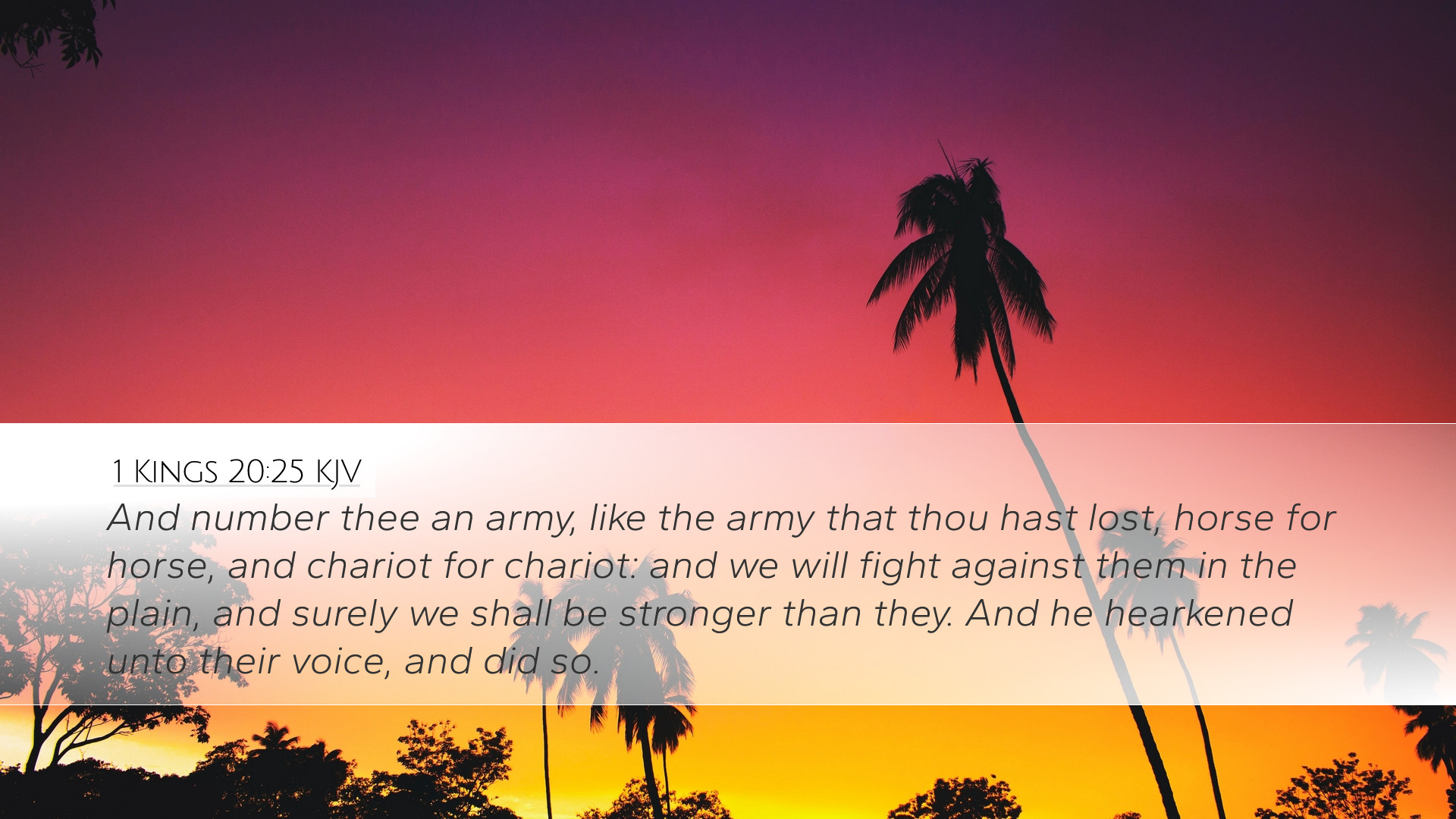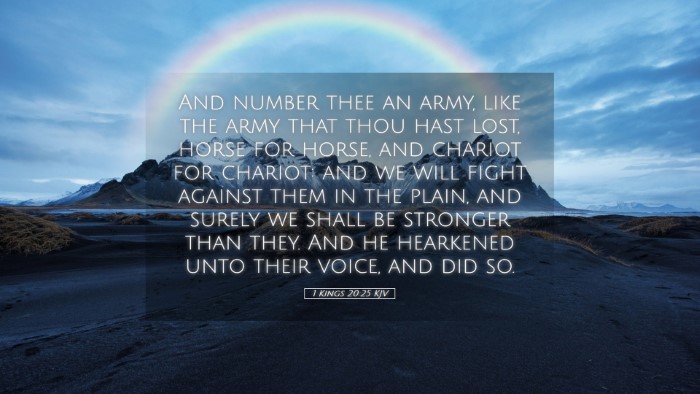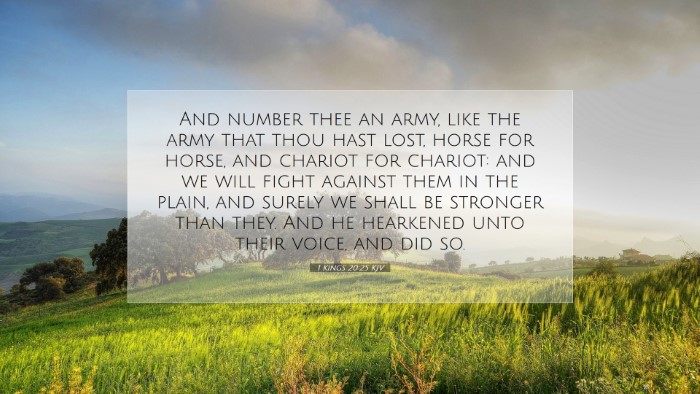Commentary on 1 Kings 20:25
Verse Context: In 1 Kings 20, we find a narrative about King Ahab of Israel and his conflicts with Benhadad, the king of Syria. This chapter highlights the themes of divine sovereignty, the consequences of pride, and the importance of reliance on God in times of adversity.
Verse:
"And you shall number the troops that are with you, and prepare yourself against the attack. In the spring of the year, the king of Syria will come up against you." - 1 Kings 20:25 (NKJV)
Insights from Commentaries
Matthew Henry's Commentary
Matthew Henry emphasizes the prophetic aspect of this verse. He notes that it reflects God's foreknowledge and His interaction in human affairs. Ahab, despite being a deeply flawed king, receives a message from God regarding the impending attack. Henry highlights that God often provides warnings and opportunities for repentance and preparation.
- Preparation for Conflict: Ahab is instructed to prepare his troops. This illustrates the balance between divine sovereignty and human responsibility. While God knows the outcome, Ahab must still act, demonstrating human agency in the face of divine prophecy.
- Seasonal Warfare: The mention of "the spring of the year" signifies a time of renewal and often marked the beginning of military campaigns in the ancient Near East. This indicates that Ahab’s adversaries are strategic and seek to take advantage of the season's military advantages.
Albert Barnes' Notes on the Bible
Albert Barnes provides a detailed analysis of the implications of this verse regarding conflict and strategy. He comments on the worldly wisdom of military preparations and notes that, while such preparation is essential, reliance on God is paramount.
- Human Wisdom vs. Divine Intervention: Barnes argues that the preparations Ahab must undertake illustrate the tension between depending on human strategies and seeking divine aid. Ahab's character and his frequent despicable actions make his reliance on divine intervention particularly poignant.
- The Role of Prophets: Barnes points out the importance of prophets in the Old Testament, serving as mediators who convey God’s will to kings and nations. The mention of the coming attack serves as a reminder that God is in control of the course of history, even regarding Israel's adversaries.
Adam Clarke's Commentary
Adam Clarke highlights the theological implications of the verse, focusing on the significance of God addressing Ahab directly, despite his failings. Clarke outlines Ahab’s governance and the context of his military conflicts.
- Theological Attention: Clarke suggests that God’s direct speech to Ahab manifests His mercy, as God still provides guidance to a king who repeatedly turns from His ways. This illustrates the profound depths of God's grace, extending even to those deemed unworthy.
- Impending Judgment: The impending attack from Benhadad can also be perceived as a form of judgment. The choice of “numbering the troops” indicates preparation but it might also suggest a lack of faith, foreshadowing the disastrous consequences of continuing a wicked path.
Theological Reflections
This verse prompts theological reflections on divine sovereignty and grace. Despite Ahab’s errant reign filled with idolatry and injustices, God’s willingness to provide counsel reveals His overarching desire to guide His people toward righteousness.
Human Agency and Divine Sovereignty
The duality of human agency juxtaposed against divine sovereignty plays a significant role in understanding this passage. The preparations that Ahab must undertake highlight the responsibility of individuals to act faithfully in alignment with God’s directives, yet the outcome remains in God’s hands.
The Nature of Conflict
Through this verse, we can infer that conflict is an inherent aspect of life, both politically and spiritually. The call to prepare for an attack serves as a metaphor for the spiritual warfare Christians face. Preparation involves not only strategic actions but also a reliance on prayer and God's provision.
The Relevance for Today’s Readers
1 Kings 20:25 can serve as a poignant reminder for modern believers about the importance of being vigilant and prepared for spiritual challenges while trusting in divine interventions. Pastors, students, theologians, and scholars are called to reflect on their areas of responsibility and the need for God’s wisdom in leadership and decision-making.
Conclusion
In summary, 1 Kings 20:25 serves as a profound narrative involving themes of prophecy, judgment, preparation, and divine grace. The insights from the commentaries elucidate the historical and theological significance of the verse and invite contemporary readers to consider their own faithfulness and reliance on God amid life's challenges. As Ahab faced external conflicts, so too must believers confront internal and external battles with God's wisdom guiding their actions.


